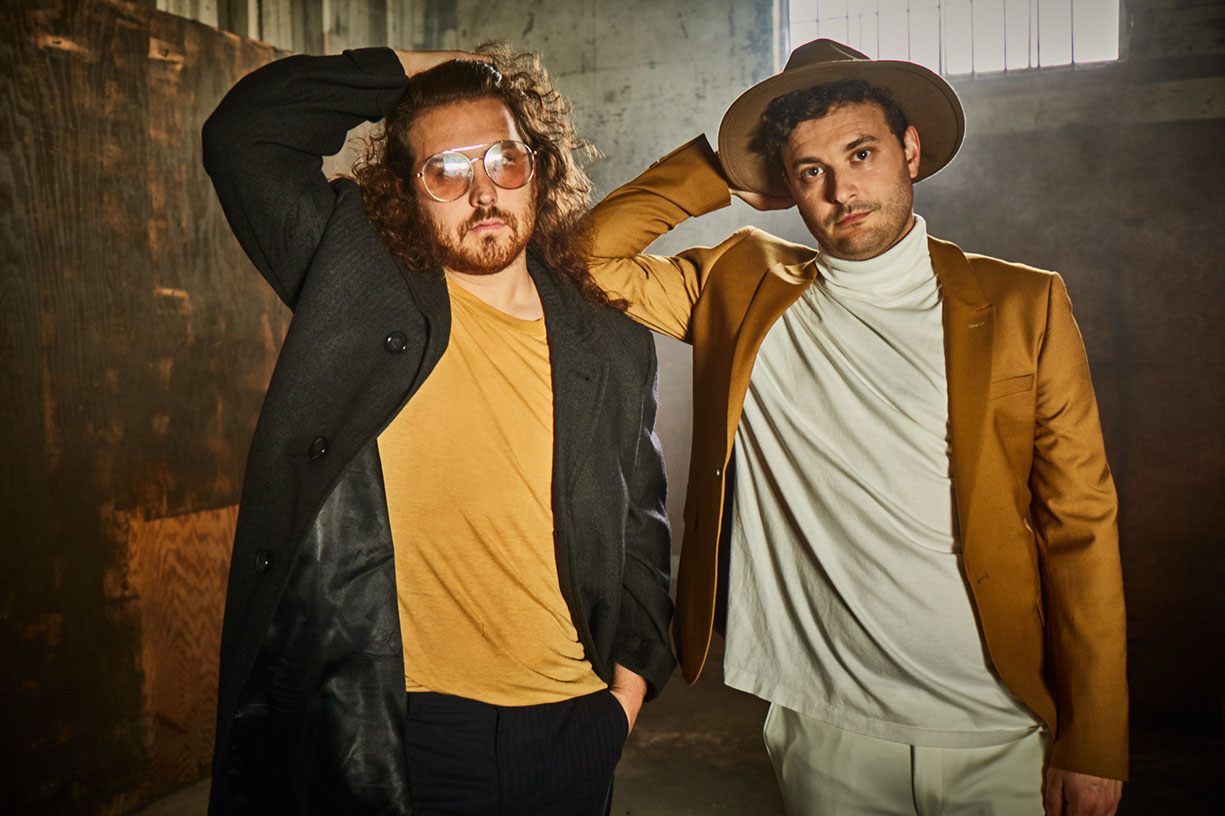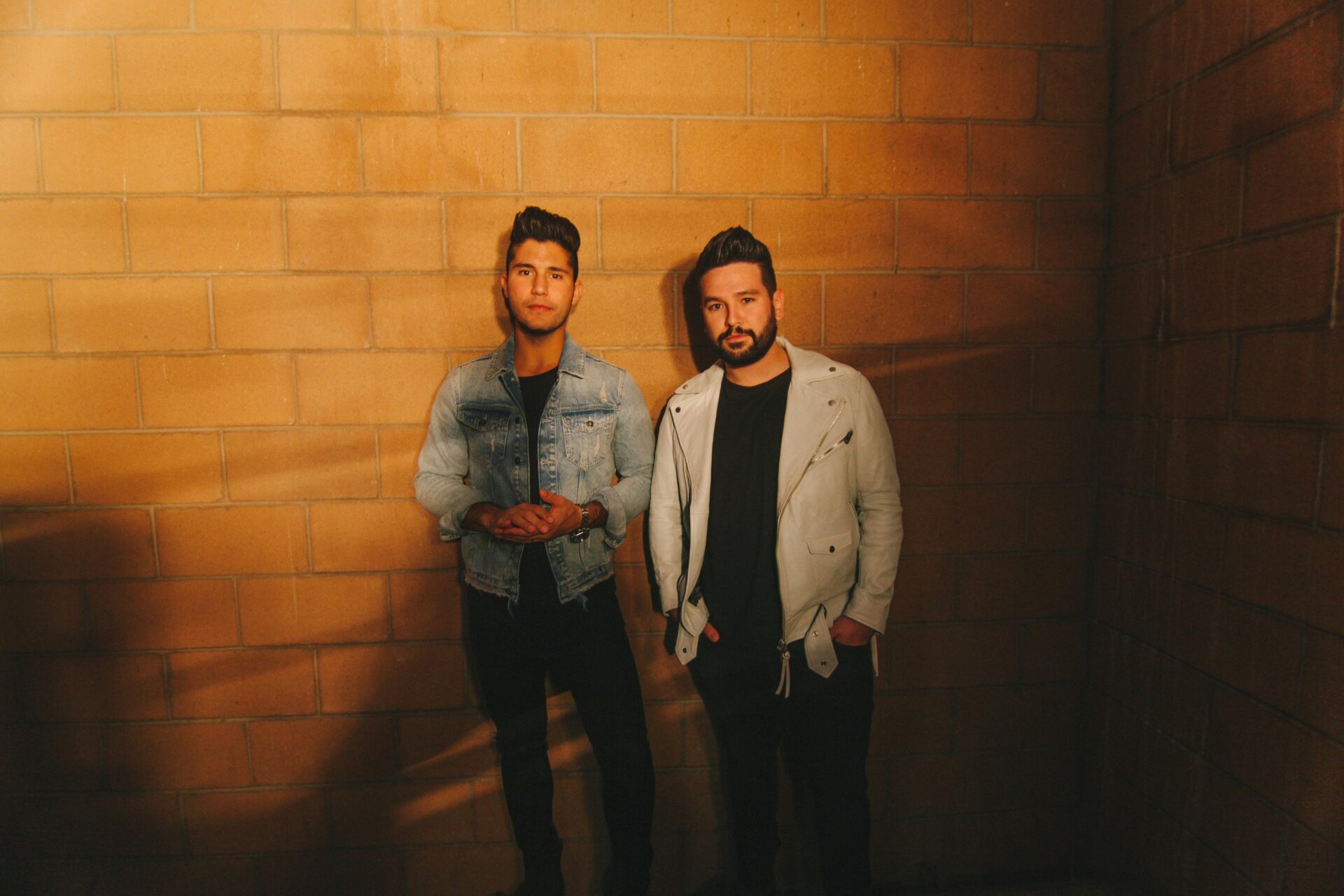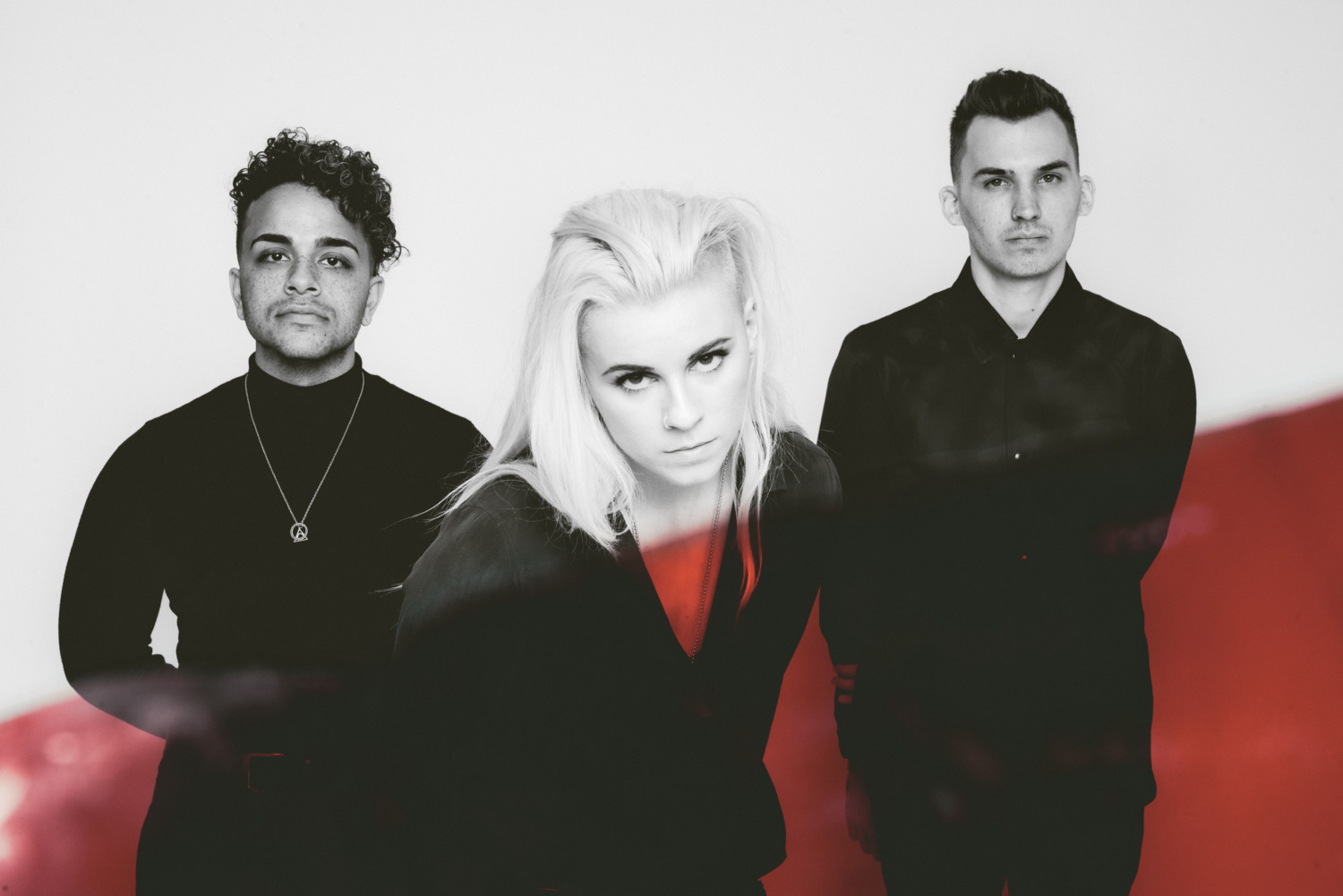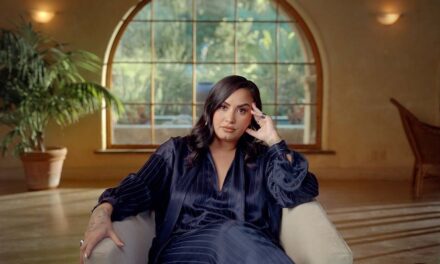Despite not releasing an album since 2015, JR JR had a busy year in 2017. The adventurous alt-pop duo released four singles, were featured in Netflix’s critically- acclaimed series 13 Reasons Why, and completed a run of benefit shows dubbed The Mental Health Awareness Tour. Behind the scenes, JR JR have been finishing up an album while rethinking how to approach releasing music, reaching fans and raising their voices.
Moving forward from 2015’s self-titled album, their first since shortening the name to JR JR from Dale Earnhardt Jr Jr, bandmates Josh Epstein and Daniel Zott started to consider alternate ways of releasing music. As playlists and play queues continue to compete with albums for listeners’ attention, the duo became frustrated that only the singles and first few songs on a release tended to get noticed.
“If people’s attention spans are shorter, we might as well just release songs and give each song the life that it was meant to have,” Epstein says. “As opposed to having some of our favorite songs not even get heard by a lot of people.”
The singles released by the Detroit duo in 2017 attempt to answer that dilemma. By individually releasing the four songs, Epstein and Zott hope to create an independent life and context for each of the tracks.
Still, the band plan to release an album including those songs at some point in 2018. But blending the past and present is nothing new for JR JR. In their world, modern dance pop, electronica, and ‘60s harmonies blend together into a swirling collage of vibrantly colored melodies. Compare “Same Dark Places” with its acoustic counterpart—the first dances through kaleidoscopic pop while the latter relaxes with almost folksy tenderness.
For Epstein and Zott, keeping a flicker of originality has been a defining characteristic of their music and careers. In contrast, they’ve watched as trends spread thick and sticky across the music of peers and contemporaries.
“We’ve kind of entered this copycat era in music where something happens and its successful and all of the sudden it’s like everyone’s going to try and do that for the next year,” Epstein elaborates. “A disappointing thing for me is watching people who I’ve respected fall into that trap, and what I want to do is create an alternate timeline where activism and intellect is valued in music in the same way that I feel like music has been important to me.”
Initially, the Internet and the opportunities it provided seemed an ideal way for Epstein and his creative partner to minimize the influence of corporate decision makers that they often had to operate through. The quickest learners and most innovative users could reach their fans without needing to jockey for air time on the radio or shelf position in stores. But as the industry has adapted, Epstein says, many of the new outlets for connecting artists and fans have been compromised by advertising money and other financial interests, making it difficult to reach one’s intended audience.
“In the same way that net neutrality is becoming an issue, I think that music streaming neutrality is an issue,” he explains. “Especially if you’re browsing and looking through playlists. Playlists are totally bought and paid for now, they’re not just curated by gatekeepers.”
Epstein notes that some artists he’s long looked up to have become passive in the face of these changes, accepting trend-hopping and questionable promotional practices as part of the job, but also failing to use the voice they’ve earned as performers with a strong fanbase.
“There’s too much fear among artists,” he says. “Let’s just say what we think needs to be said and what inspires us to make this work. And if that turns off listeners then, I guess, so be it. I don’t need to be a musician at the expense of my soul. I can make money any way and feel bad about it, I don’t need to make money playing music and feel bad about it.”
In the wake of the 2016 election and the series of political and social controversies that have followed it, the members of JR JR found themselves inspired to contribute to the conversation about what’s happening in the world around them. Epstein says “Control” came to the band the day after the election as he considered who has control and why someone wants control. The ongoing clean water crisis in Flint, Michigan, located roughly an hour drive from the band’s hometown of Detroit, remains a strong example in his mind of how corruption and abuse of power often have the strongest effects on the most vulnerable people.
JR JR’s recent songwriting has attempted to speak to the issues that the duo finds important to address.
“If you look at great art throughout history and the things that have kind of moved me, it’s someone saying something that’s so important and that I believed deep down also and didn’t quite know how to say it or express it,” Epstein says. “I think that artists need to be at the forefront of defending people.”
On “Same Dark Places,” Epstein tried to capture one of those mutually understood expressions by detailing his own experience with anxiety. In it, he offers coping mechanisms and gentle aphorisms to those in similar situations. It’s a story that’s been told before, but one worth repeating. The song gained its own life when 13 Reasons Why approached the band about using a track for the show, which details a teen’s decision to commit suicide.
Though 13 Reasons Why has received critically positive reviews, it’s been met with controversy for the topics it confronts. Epstein and Zott, who are fans of the show, saw the potentially divisive nature of the content as an opportunity to reach out to those affected by mental health issues, using the song and show as a kicking-off point to launch a benefit tour. The Mental Health Awareness tour took place in May, which happens to be Mental Health Awareness Month, with a portion of ticket sales benefitting the Jed Foundation, a non-profit aimed at preventing suicide.
“More so than ever, if you do have a platform, you have to use it to make as much goodness happen and promote as many good values and beliefs into the world because no one else is going to,” Epstein says. “As an artist you’re supposed to not care about money, you’re supposed to be altruistic. Maybe that’s a lot to ask of artists, and I don’t begrudge any of them for not, it’s just, like, I have to try and give as much to the world as I can.”
*A version of this interview first ran in the current print issue of Substream Magazine, on stands now and available through our online store!













